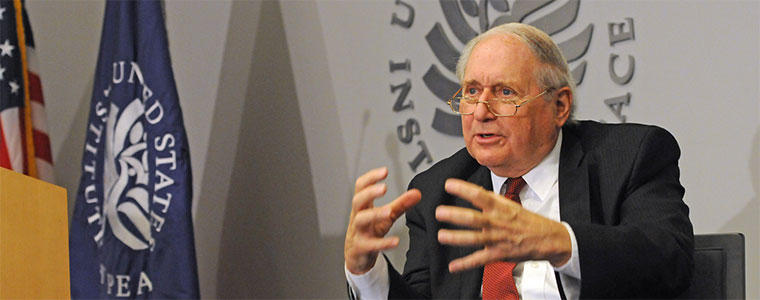Senator Levin on the New U.S.-Afghan Partnership
A USIP Congressional Newsmaker Series Event
Read the Event CoverageThe U.S. Institute of Peace welcomed Senator Carl Levin (D – Michigan), Chairman of the Senate Armed Services Committee, for a public discussion moderated by USIP Chairman of the Board of Directors, Stephen J. Hadley, on the future of Afghan-US relations.

The inauguration on September 29th of Dr. Ashraf Ghani as the new president of Afghanistan, and head of a national unity government that includes runner-up candidate Abdullah Abdullah as chief executive, marks the first democratic and peaceful transition of power of one elected president to another in Afghanistan’s history. One of the first acts of the new government was to sign the Bilateral Security Agreement with the United States. This long-awaited agreement enables US troops to remain in Afghanistan beyond 2014, supporting the Afghan security forces and the new government, and paved the way for NATO to sign a similar agreement. This shift offers an opportunity for Afghanistan and the US to restore a bilateral relationship that was badly strained during the final years of President Karzai’s term.
USIP was pleased to host Senator Levin, closely involved with the U.S. effort in Afghanistan since 2001, and Stephen J. Hadley, Chairman of the Board at USIP and former assistant to the president for National Security Affairs for a discussion on these and other issues.
Continue the conversation on Twitter with #AFGNext.



